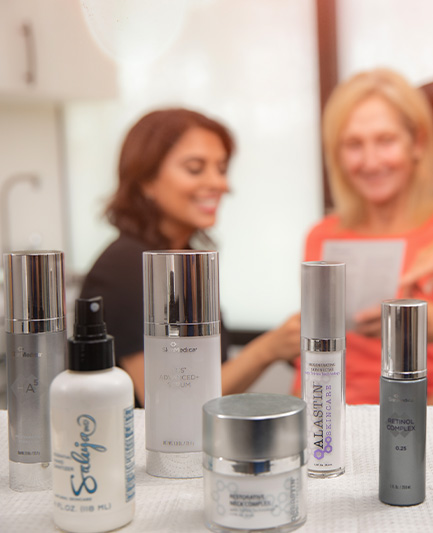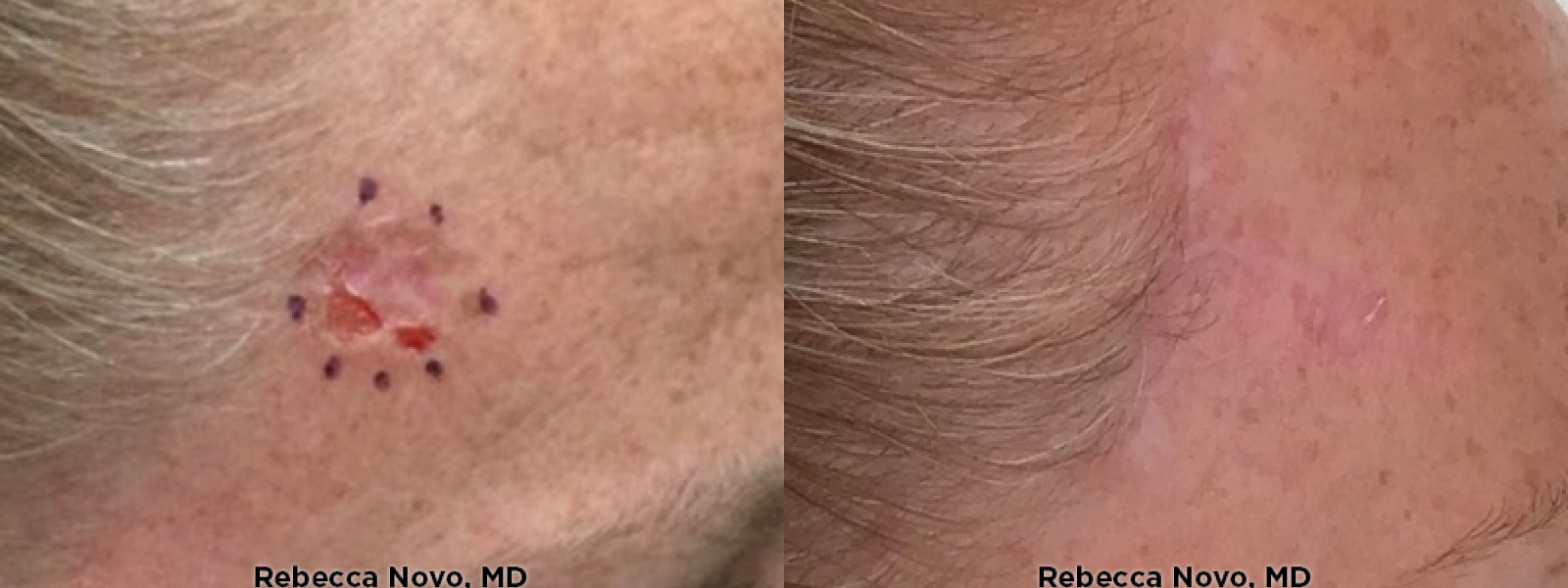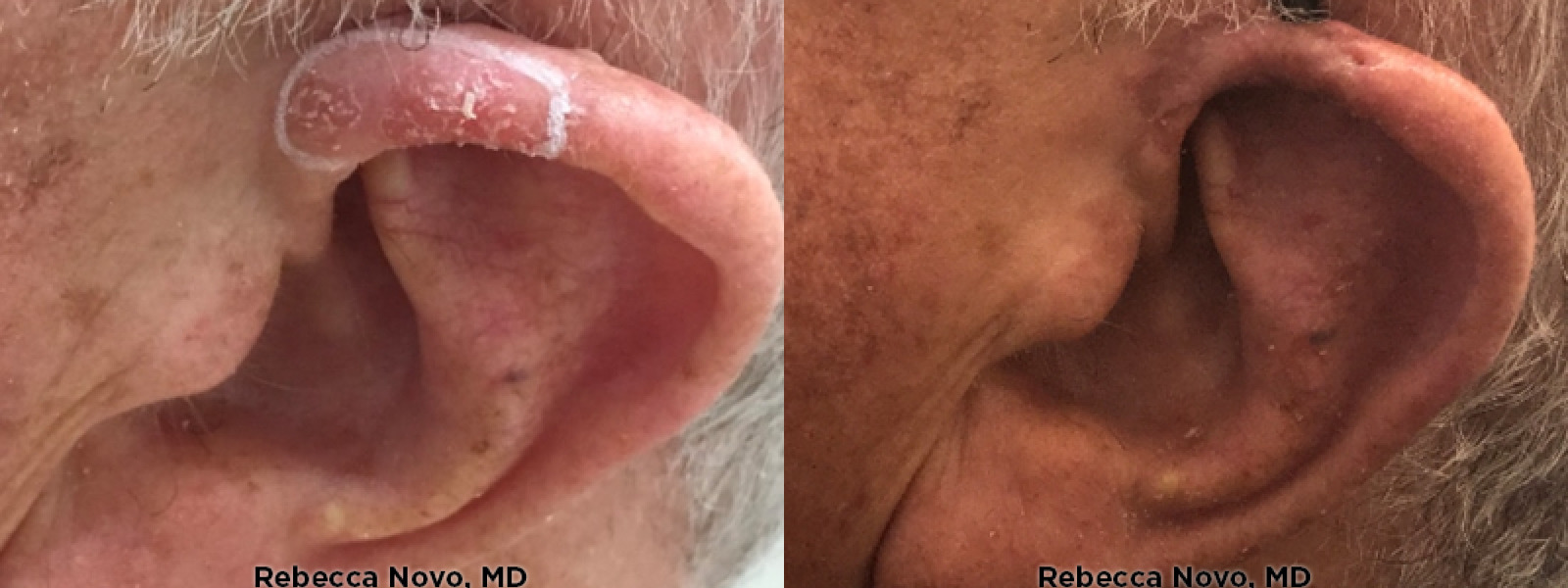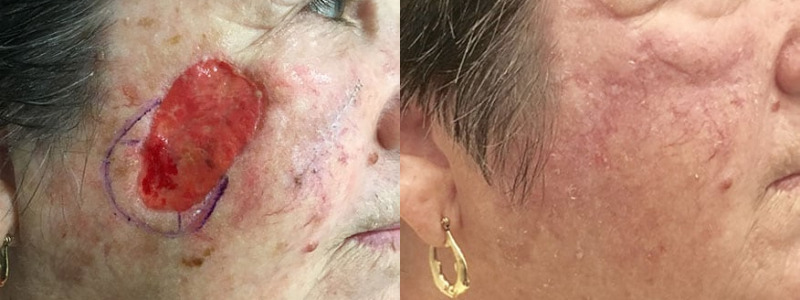SEARCH OUR WEBSITE
On This Page
- What Is Skin Cancer?
- How Common Is Skin Cancer?
- Natural, Authentic results
- Why Is It Important To Screen For Skin Cancer?
- What Happens During A Skin Cancer Screening?
- How Can I Minimize My Risk Of Skin Cancer?
- Does Health Insurance Cover Skin Cancer Screening?
- Frequently Asked Questions
- Creating Lifelong Relationships with Our Patients
- Contact Us For Your Customized Consultation
- Reveal Your Most radiant Skin
If you have a suspicious growth, bump, or mole that looks abnormal or exhibits one of the ABCDE characteristics, it is imperative that you see a dermatologist immediately for a skin cancer screening. At Dermatology + Plastic Surgery, led by board-certified dermatologist Anita Saluja, MD and double board-certified plastic surgeon Rebecca Novo, MD, skin cancer screening, surgery, and treatment are available for residents of Melbourne, Indialantic, Viera, Brevard County, the beaches, and nearby communities in the Central Florida area.
What is Skin Cancer?
Skin cancer is characterized by an abnormal growth of skin cells that usually develops on areas of the skin that are exposed to excessive sunlight. Skin cancer affects people of all ethnic backgrounds, although the risk of skin cancer is slightly higher among people with light skin who have a tendency to sunburn easily.
How common is Skin Cancer?
Skin cancer is the most common form of cancer in the United States, and one in five Americans will develop it in their lifetime. There are several types of skin cancer, including actinic keratosis (AK), basal cell carcinoma (BCC), squamous cell carcinoma (SCC), and melanoma. Basal cell carcinoma is the most common, along with squamous cell carcinoma; fortunately, these cancers have a very high cure rate. Less common but more dangerous is melanoma, which although more aggressive than other forms of skin cancer, may also be treated successfully with early detection and treatment.
NATURAL, AUTHENTIC Results
VIEW GALLERYWhy is it important to screen for skin cancer?
The key to successful treatment of all cancer is always early detection. Because cancer is a disease that by nature advances and spreads, it is especially important to initiate treatment as early as possible. Non-melanoma skin cancers have a successful cure rate of about 95 percent when detected and treated early. Even melanoma can be prevented from spreading, and also has a high cure rate when detected and treated before it begins to spread. It is important to practice regular self-exams and receive yearly medical checkups to help detect pre-cancerous conditions and early stage skin cancer.
What happens during a skin cancer screening?
A skin cancer screening is basically a visual inspection and assessment of your skin by a dermatologist. If you have any growths or moles that look suspicious, a biopsy might be conducted to determine if the cells are malignant. A skin biopsy is performed using a local anesthetic injected into the area with a very small needle. You may feel a small prick and some slight stinging as the medicine is injected, but there is usually no pain during the actual biopsy. Typically, the mole or a section of it is removed and sent to a lab to be examined carefully under a microscope. In many cases, the entire tumor is removed for the biopsy, and this alone may be sufficient to cure non-melanoma skin cancers without the need for further treatment.
A note on skin cancer screening: It is best to remove all of your clothes for a total body skin exam. The doctors don’t have X-ray vision! Move your hair out of the way and take off your jewelry, watches, and shoes. Of course, coming makeup free is best, too.
How can I minimize my risk of Skin Cancer?
The most important step you can take to minimize your risk of skin cancer is to thoroughly protect your skin from the damaging effects of excessive UVA and UVB rays either from sunlight or artificial tanning booths. We recommend avoidance of tanning beds and encourage the use of a broad-spectrum, water-resistant sunscreen that protects the skin against both UVA and UVB rays with an SPF of at least 30. Ingredients to look for include zinc oxide and titanium dioxide. Our favorite medical sunblocks can be found at our For Your Best Self store. Apply sunscreen liberally and frequently whenever you are spending time outdoors, even on cloudy days and while traveling in a car. You can also protect your skin by wearing clothing that covers the arms and legs, as well as wide-brimmed hats that protect the face and neck. Bear in mind that the sun’s rays are strongest between 10 a.m. and 2 p.m. and these are the hours of greatest damage to the skin. A good general rule of thumb is: if your shadow is shorter than you are, stay in the shade!
Drs. Saluja and Novo also believe that, for your best self, it is important to be proactive in advanced preventative measures such as antioxidants designed specifically for skin and sun, as well as proactive laser therapy for precancerous lesions.
Does health insurance cover Skin Cancer screening?
Most health insurance does cover part or all of the cost of skin cancer screening. For patients without health insurance, our office offers various payment options.
Put your mind at ease with early screening for any skin condition that you suspect might be dangerous. Dermatology + Plastic Surgery, led by board-certified dermatologist Anita Saluja, MD and double board-certified plastic surgeon Rebecca Novo, MD provides comprehensive screening, surgery, and treatment for skin cancer for residents of Melbourne, Indialantic, Viera, Brevard County, the beaches, and neighboring areas in Central Florida. Contact us now!
Frequently Asked Questions
What age should you get a skin cancer screening?
At what age does skin cancer typically occur?
Can a dermatologist tell if you have skin cancer?
Can a dry patch of skin be cancer?
Can a skin cancer look like a pimple?
Can laser remove skin cancer?
Can skin cancer go away by itself?
Can skin cancer show up suddenly?
CREATING LIFELONG RELATIONSHIPS With Our Patients
READ MORE REVIEWSCONTACT US FOR YOUR Customized Consultation
Fill out the form below or call us at (321) 395-3298 to schedule your custom consultation.
OUR BLOG
Learn More
REVEAL YOUR MOST Radiant Skin
Dermatologist Dr. Anita Saluja and plastic surgeon Dr. Rebecca Novo have created an online shop for your convenience. They have curated scientific skin care products that they believe will deliver results: For Your Best Self. And you can always contact our office with any questions.
SHOP OUR SKIN STORE







